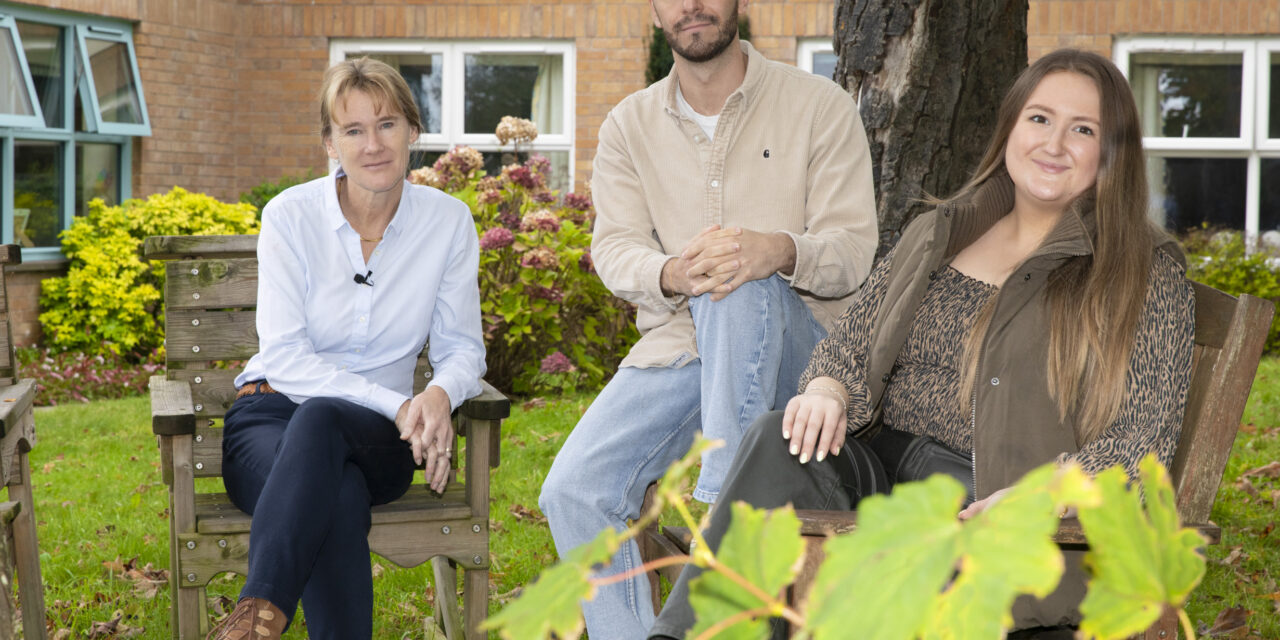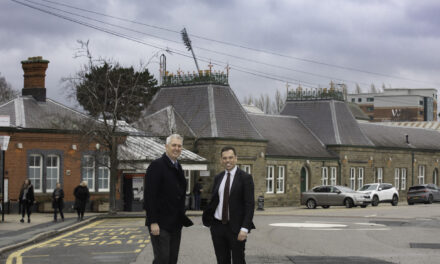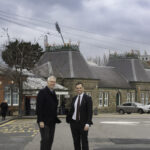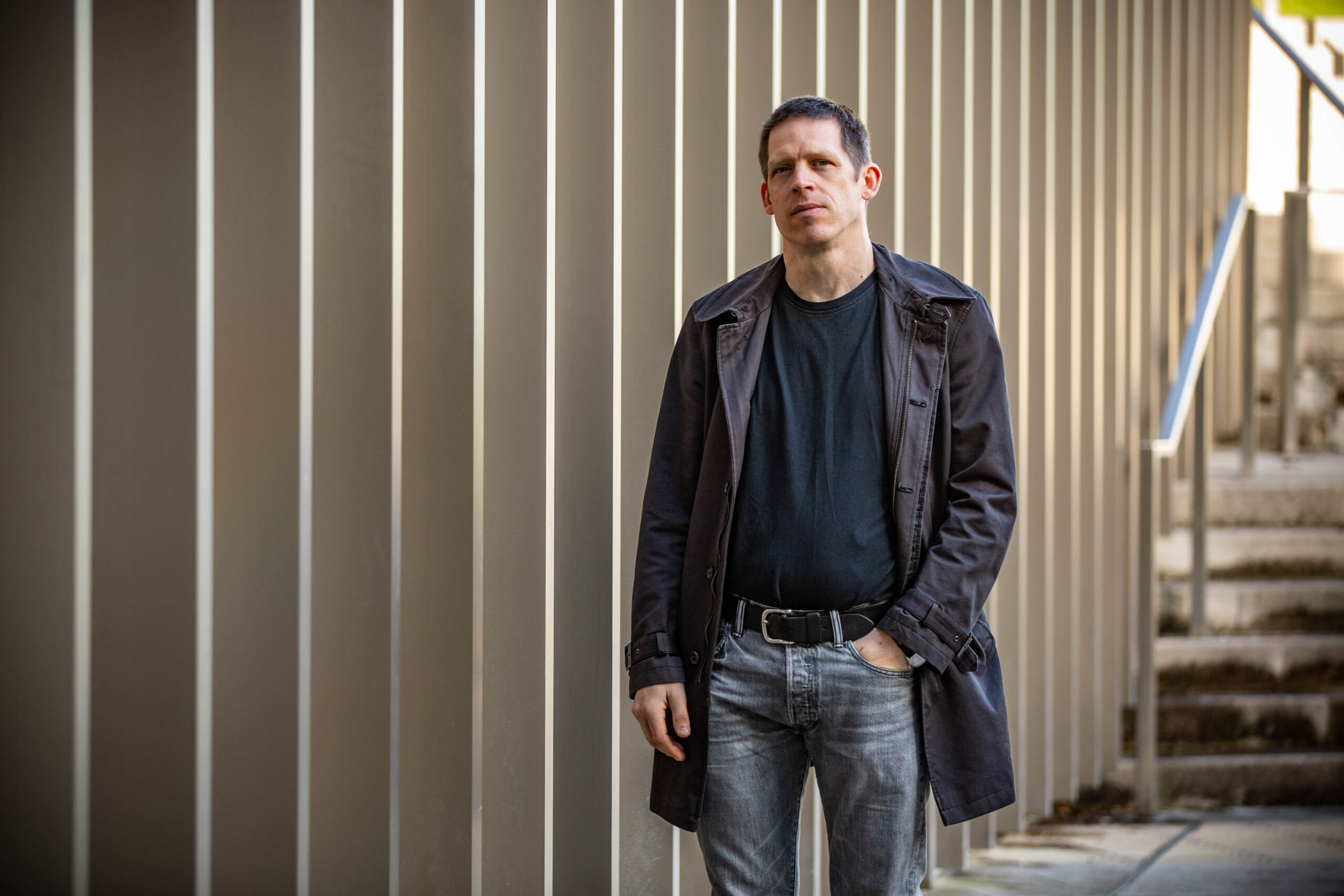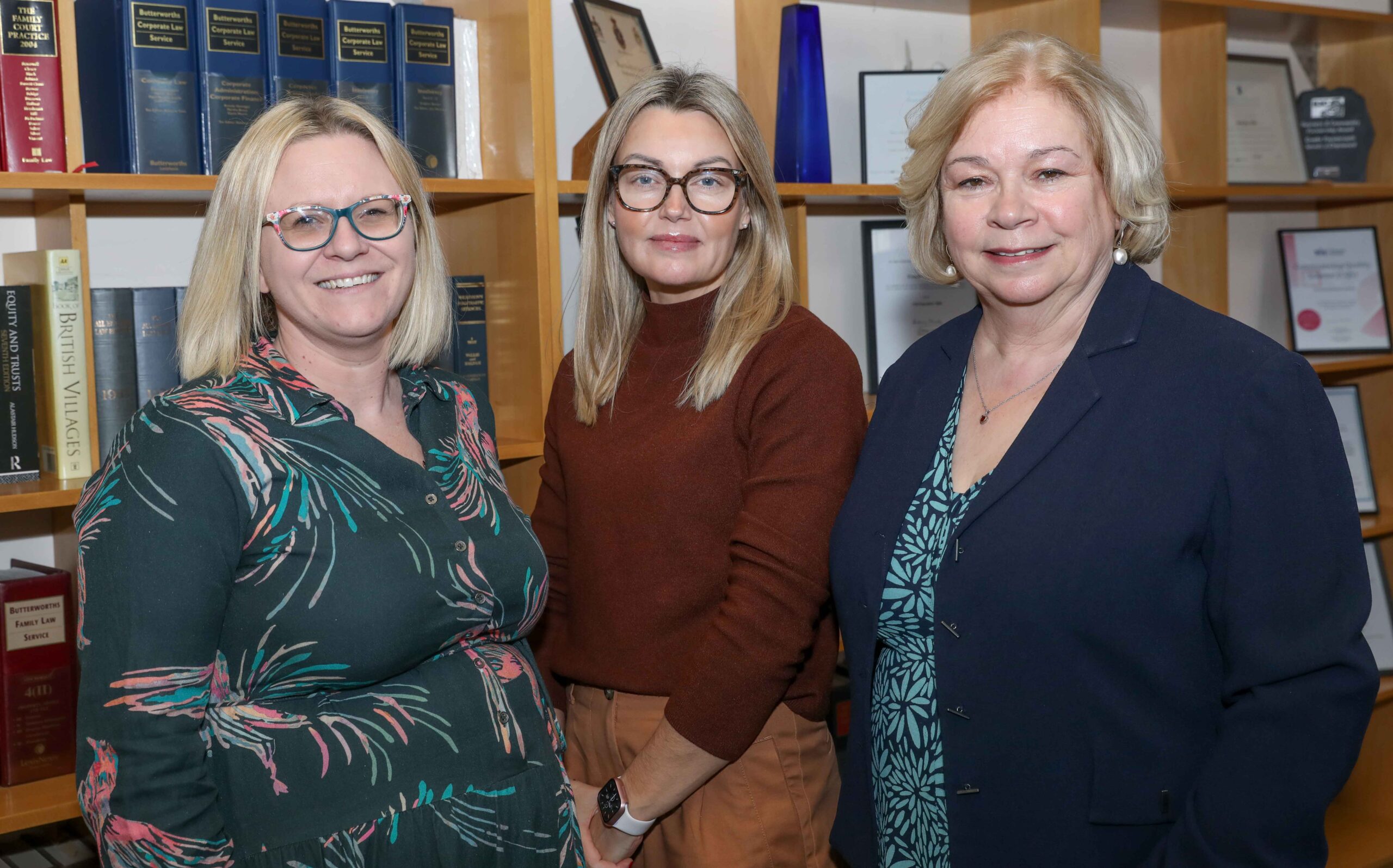A devoted daughter is speaking out to raise awareness about the cruel disease that’s struck her father at a tragically young age.
At just 52 years old Tony Thomas – known locally in Gaerwen on Anglesey as Tony Graig – was diagnosed with frontotemporal dementia (FTD), a group of brain disorders that also affects Hollywood actor Bruce Willis.
FTD is caused by the progressive loss of nerve cells in the brain, leading to changes in behaviour, personality and language.
For Tony, a well-known agriculture contractor on the island, the impact has been life-changing.
Now 57, he has spent the past year being lovingly cared for at Pendine Park’s Bryn Seiont Newydd in Caernarfon, an award-winning centre specialising in dementia care.
His daughter, Erin Thomas, who works at the Menter Môn regeneration agency, has become a passionate advocate for raising awareness of dementia in younger people.
Erin is taking part in a special S4C current affairs programme, Y Byd ar Bedwar, which investigates the support available in Wales for those living with dementia under the age of 65.
Her father’s story will be featured in the broadcast at 8pm on Monday, November 3.
Erin said: “My father was diagnosed with frontotemporal dementia (FTD) five years ago but that process was difficult because the system couldn’t adapt to diagnosing someone so young. It took over three years from the initial signs to get an assessment.
“There is a need more specialist facilities for people like my father created in North Wales. There are none in the area and the only places available are care homes but at 57 he is too young to be in an older people’s care home.
“Preparations need to be made to cater for people like my father. He is a Welsh speaker and needs to be cared for locally. His dementia is not going to go away and there is currently no cure.
“I am hoping this programme will raise awareness that people well under the age of 60 can be diagnosed with dementia and need to be cared for from a much younger age.”
Frontotemporal dementia encompasses several types of dementia involving the progressive degeneration of the brain’s frontal and temporal lobes.
Research has shown men and women appear to be equally affected and may be the result of genetic imbalances and be hereditary.
FTD generally presents as a behavioural or language disorder with gradual onset and signs and symptoms tend to appear in mid adulthood, typically between the ages of 45 and 65, although it can affect people younger or older than this. There is currently no cure or approved symptomatic treatment for FTD.
Nia Davies Williams, Bryn Seiont Newydd’s musician in residence, said Tony had presented staff with unusual challenges when he moved in.
“We had to think carefully about the enrichment programme for Tony as he is much younger than the majority of other residents at Bryn Seiont Newydd.
“We were aware that he enjoyed playing pool and we set up a table some distance from his room to encourage him to walk. We were pleased to see him make the journey and remember how to play the game. He would play all day if he could!
“Music plays an important part in the daily life of Bryn Seiont Newydd and many residents have clear recollections of songs which were popular in their younger years.
“Tony is from a different generation and we thought he might have a different set of memories but he enjoys singing with the other residents.”
She said facilities catering for relatively young people living with dementia are limited with just one unit at Barry in south Wales.
Before being diagnosed with the cruel disease Tony was an active member of the community working as an agricultural contractor on farms across the island. He previously worked at the Dinorwig power station at Llanberis.
An engineer with a degree from Liverpool John Moores University, Tony also produced plans and designs for conservatories and other structures.
Erin said: “He loved playing pool and was a keen member of Hogia Bodwrog and enjoyed singing.”
She has nothing but praise for the care that her father receives at Bryn Seiont Newydd and is keen to contribute to the discussion on how people cope at diagnosis with early/onset and what suitable help is out there for such cases.
“For the first four years he lived in an assisted living situation with three other men but that wasn’t working. He now needs specialist attention and we had to look for alternative care.
“I visited Bryn Seiont Newydd and was very impressed with the set-up and decided this was the best place for him despite him being the youngest person at the care home by some margin. They have made every effort to cater for him and his needs and I know he is happy here.
“The work done by the enrichment team is excellent and I know it was the best decision to place him here.”
Bryn Seiont Newydd’s manager Sandra Evans added: “It is always a tragedy to see people as young as Tony being diagnosed with dementia.
“There are over 100 residents here at Bryn Seiont Newydd and there are always a handful of people in their late 50s and early 60s here.
“I am happy that Tony has settled into life at Bryn Seiont Newydd and that he is happy and content and that Erin and her family are pleased with that.
“At Pendine we pride ourselves on how we have pioneered the arts in social care for 30 years and we know that the arts generally and music in particularly can make a real difference.”
Byd ar Bedwar reporter Sion Jenkins said the programme looks at people living with dementia and its effect on their families.
“We look at it through the eyes of Erin and her father Tony and another Anglesey family. Hopefully the programme will help raise awareness of the extent of dementia and how it affects their families and consider the facilities available in the region,” he said.
Y Byd ar Bedwar will be broadcast on S4C on Monday, November 3 at 8pm. The programme will be available on demand on S4C Clic and BBCiplayer and other platforms. English subtitles are also available.

